Exhaust Muffler Replacement 4.3L, 4.8L, and 5.3L Engines
Removal Procedure
- Raise and suitably support the vehicle. Refer to Lifting and Jacking the Vehicle .
- Remove the exhaust muffler nuts.
- Apply lubricant to the exhaust insulators in order to aid in removal.
- Remove the muffler brackets from the insulators.
- Remove the exhaust muffler.
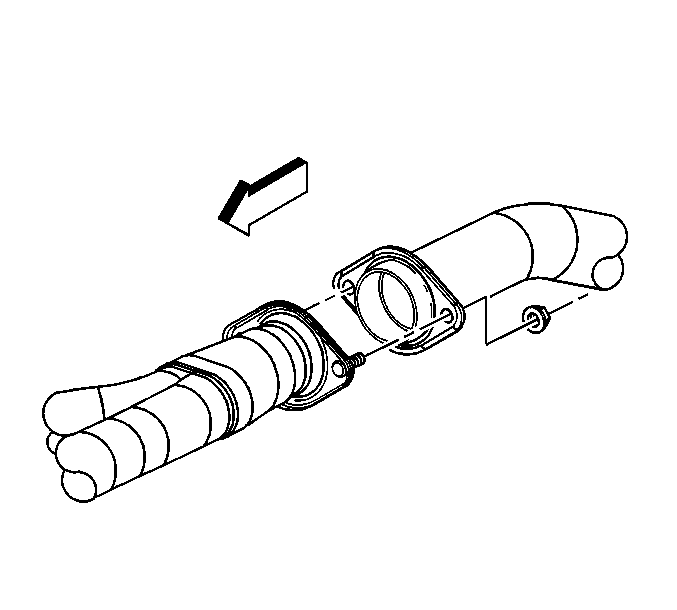
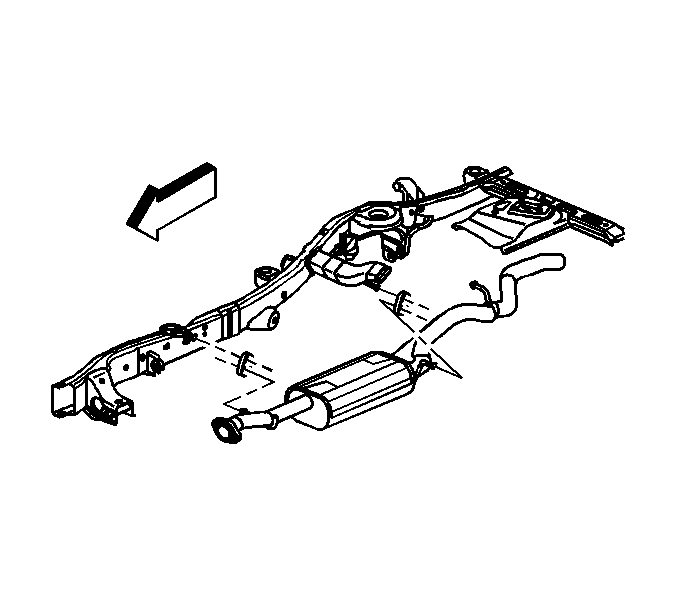
Installation Procedure
- Apply lubricant to the exhaust insulators in order to aid in installation.
- Install the muffler to the insulators.
- Install the exhaust muffler nuts.


Notice: Use the correct fastener in the correct location. Replacement fasteners must be the correct part number for that application. Fasteners requiring replacement or fasteners requiring the use of thread locking compound or sealant are identified in the service procedure. Do not use paints, lubricants, or corrosion inhibitors on fasteners or fastener joint surfaces unless specified. These coatings affect fastener torque and joint clamping force and may damage the fastener. Use the correct tightening sequence and specifications when installing fasteners in order to avoid damage to parts and systems.
Tighten
Tighten the nuts to 40 N·m (30 lb ft).
Exhaust Muffler Replacement 6.0L, 6.6L, and 8.1L Engines
Removal Procedure
- Raise and suitably support the vehicle. Refer to Lifting and Jacking the Vehicle in General Information.
- Remove the spare tire, if necessary.
- Install adjustable jack stands under the rear axle, if necessary.
- If equipped with a 8.6 or 9.5 inch ring gear, remove the rear axle vent hose from the rear axle, if necessary.
- Remove the vent hose swivel clip from the rear brake crossover pipe, if necessary.
- If equipped with a 10.5 inch ring gear, remove the rear axle vent hose from the rear axle, if necessary.
- Remove the vent hose swivel clip from the rear brake crossover pipe, if necessary.
- Remove the rear shock absorbers lower bolts and nuts, if necessary.
- Lower the rear axle using the adjustable jack stands, if necessary.
- If equipped with a 6.0L or 8.1L engine, remove the exhaust muffler nuts.
- Loosen the exhaust pipe clamp.
- With the aid of an assistant, support the exhaust muffler.
- If equipped with a 6.6L engine, remove the exhaust muffler nuts.
- With the aid of an assistant, support the exhaust muffler.
- If equipped with a 6.0L or 8.1L engine, remove the insulators from the frame hangers.
- With the aid of an assistant, slide the muffler rearward in order to remove the muffler from the catalytic converter.
- Remove the insulators from the muffler hangers.
- Remove the exhaust manifold pipe gasket, if necessary.
- If equipped with a 6.6L engine, remove the insulators from the frame hangers.
- With the aid of an assistant, slide the muffler rearward in order to remove the muffler from the exhaust muffler pipe.
- Remove the exhaust muffler gasket, if necessary.
- Remove the insulators from the muffler hangers.
- If equipped with a 6.0L or 8.1L engine, remove the oxygen sensor if the muffler is being replaced.
- If the muffler is NOT being replaced as an assembly, the band clamp MUST be replaced. Perform the following:
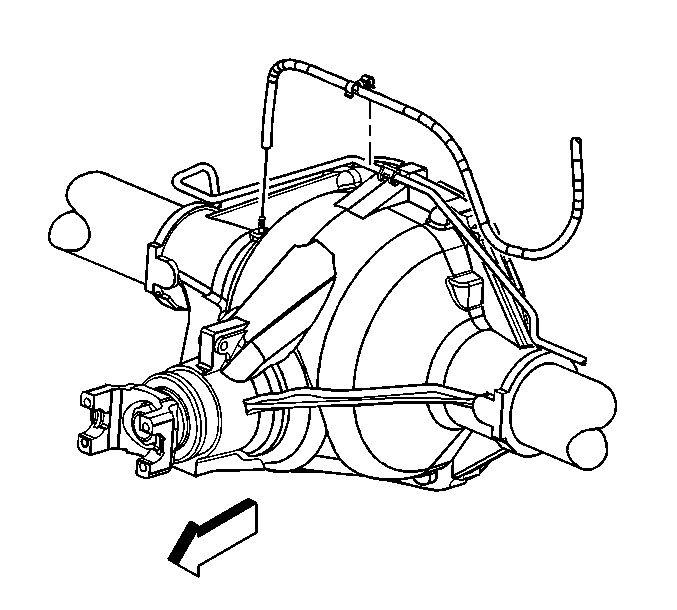
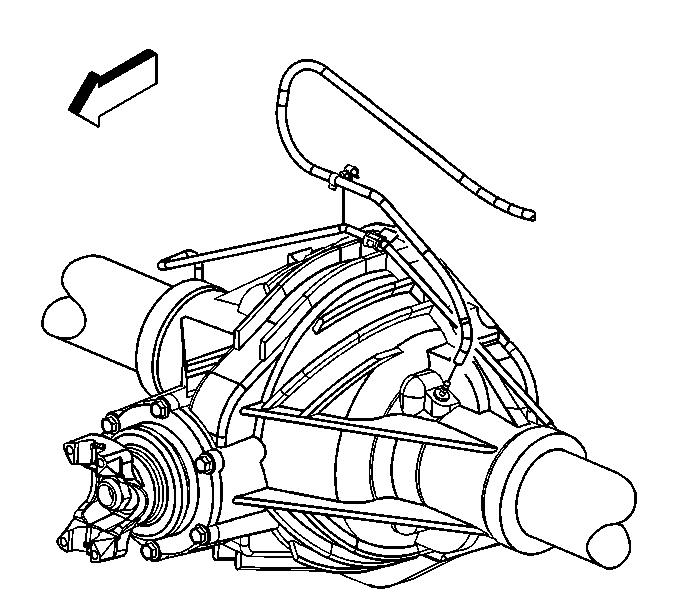
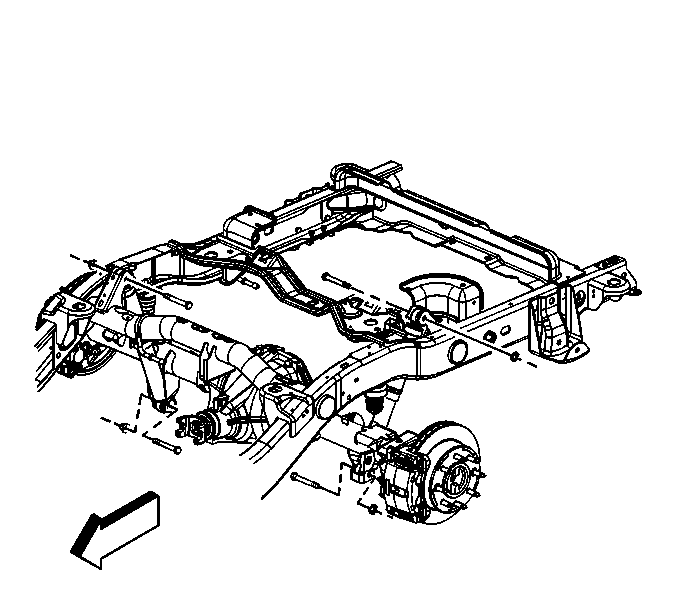
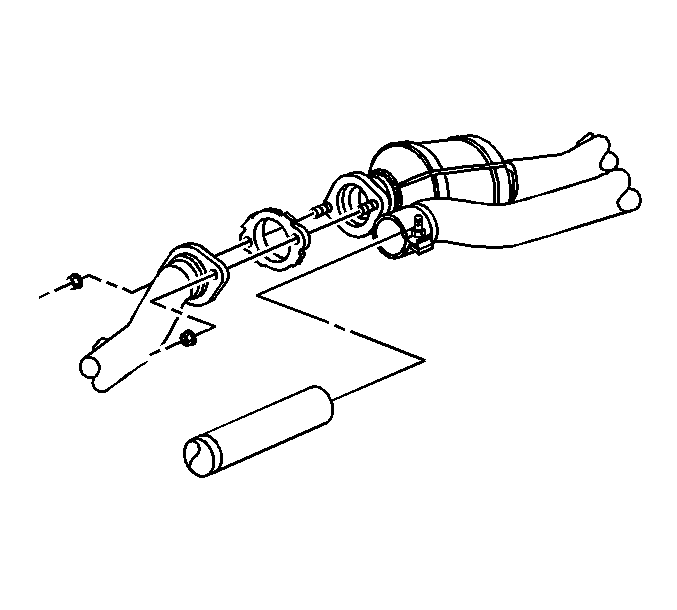
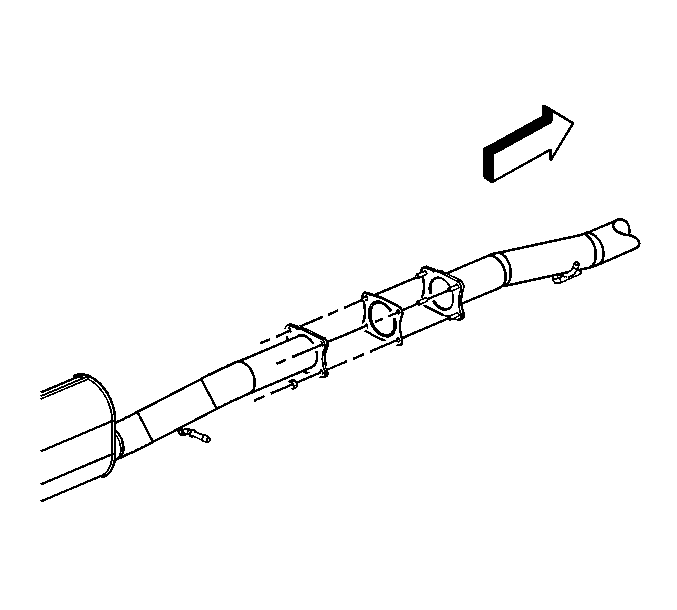
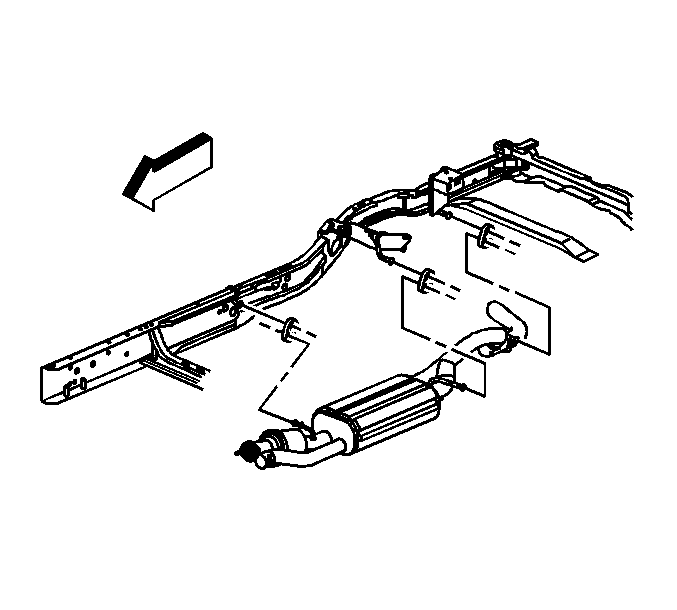
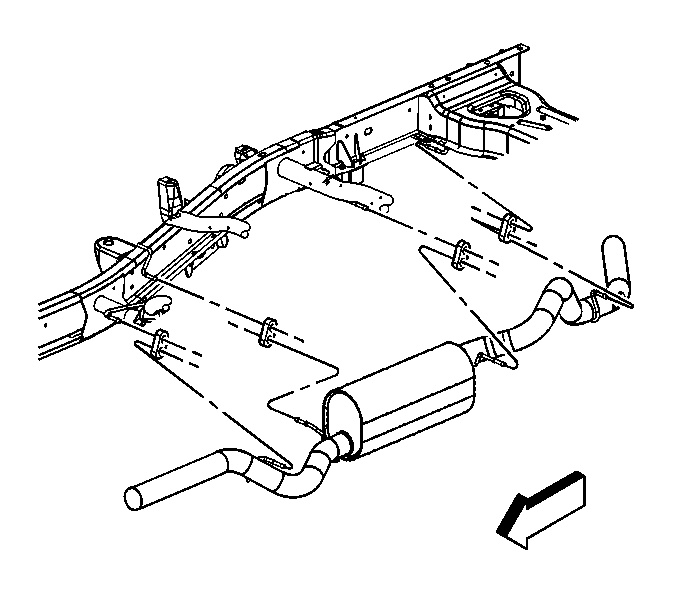
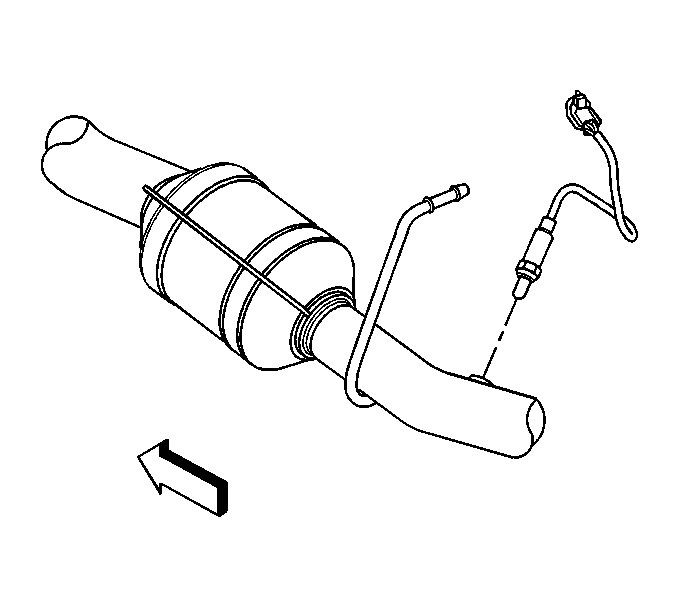
| 24.1. | Mark the position of the band clamp on the intermediate exhaust pipe. |
| 24.2. | Remove the band clamp from the exhaust pipe by grinding the weld. |
| 24.3. | Install a NEW band clamp onto the exhaust pipe. |
Installation Procedure
- If equipped with a 6.0L or 8.1L engine, and the muffler was replaced re-install the old oxygen sensor.
- Apply anti-seize compound GM P/N 12377953 or equivalent to the threads of the old oxygen sensor.
- Install the oxygen sensor.
- If equipped with a 6.6L engine, install the insulators to the muffler hangers.
- Install a new exhaust muffler gasket.
- With the aid of an assistant, slide the muffler forward in order to install the muffler to the exhaust muffler pipe.
- Install the insulators to the frame hangers.
- If equipped with a 6.0L or 8.1L engine, install the insulators to the muffler hangers.
- Install a new exhaust manifold pipe gasket.
- With the aid of an assistant, slide the muffler forward in order to install the muffler to the catalytic converter.
- Install the insulators to the frame hangers.
- If equipped with a 6.6L engine, install the exhaust muffler nuts.
- If equipped with a 6.0L or 8.1L engine, position the NEW band clamp on the intermediate exhaust pipe, using the alignment mark created previously. The band clamp bolt must NOT be positioned below the exhaust pipe.
- Install the exhaust muffler nuts.
- Tighten the exhaust pipe clamp bolt.
- Raise the rear axle using the adjustable jack stands, if necessary.
- Install the rear shock absorbers lower bolts and nuts, if necessary.
- If equipped with a 10.5 inch ring gear, install the rear axle vent hose to the rear axle, if necessary.
- Connect the vent hose swivel clip to the rear brake crossover pipe, if necessary.
- If equipped with a 8.6 or 9.5 inch ring gear, install the rear axle vent hose to the rear axle, if necessary.
- Connect the vent hose swivel clip to the rear brake crossover pipe, if necessary.
- Remove the adjustable jack stands from under the rear axle, if necessary.
- Install the spare tire, if necessary.
- Lower the vehicle.

Notice: Use the correct fastener in the correct location. Replacement fasteners must be the correct part number for that application. Fasteners requiring replacement or fasteners requiring the use of thread locking compound or sealant are identified in the service procedure. Do not use paints, lubricants, or corrosion inhibitors on fasteners or fastener joint surfaces unless specified. These coatings affect fastener torque and joint clamping force and may damage the fastener. Use the correct tightening sequence and specifications when installing fasteners in order to avoid damage to parts and systems.
Tighten
Tighten the sensor to 42 N·m (31 lb ft).

Important: Apply lubricant to the insulators to aid in installation.

Important: Apply lubricant to the insulators to aid in installation.

Tighten
Tighten the nuts to 40 N·m (30 lb ft).

Tighten
| • | Tighten the nuts to 40 N·m (30 lb ft). |
| • | Tighten the clamp to 44 N·m (33 lb ft). |

Tighten
Tighten the bolts to 95 N·m (70 lb ft).


